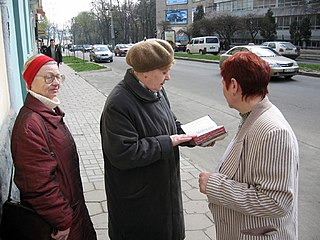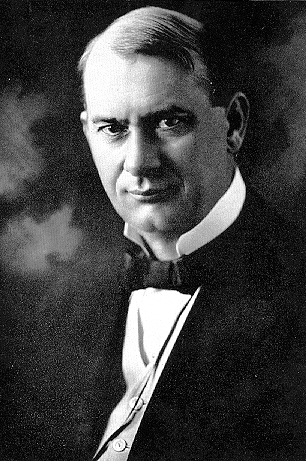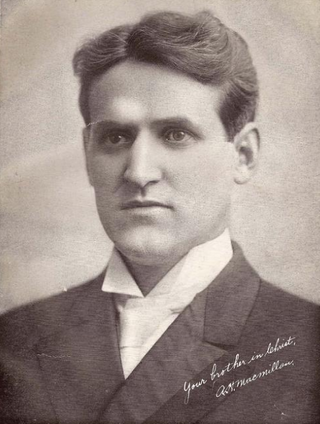
Jehovah's Witnesses are a religious group that grew out of the Bible Student movement founded by Charles Taze Russell in the nineteenth century. Russell co-founded Zion's Watch Tower Tract Society in 1881 to organize and print the movement's publications. A leadership dispute after Russell's death resulted in several groups breaking away, with Joseph Franklin Rutherford retaining control of the Watch Tower Society and its properties. Rutherford made significant organizational and doctrinal changes, including adoption of the name Jehovah's witnesses in 1931 to distinguish the group from other Bible Student groups and symbolize a break with the legacy of Russell's traditions. Jehovah's Witnesses are considered to be a nontrinitarian, millenarian, restorationist Christian denomination. In 2023, the group reported approximately 8.6 million members.
Jehovah's Witnesses' practices are based on the biblical interpretations of Charles Taze Russell (1852–1916), founder of the Bible Student movement, and of successive presidents of the Watch Tower Society, Joseph Franklin Rutherford and Nathan Homer Knorr. Since 1976, practices have also been based on decisions made at closed meetings of the group's Governing Body. The group disseminates instructions regarding activities and acceptable behavior through The Watchtower magazine and through other official publications, and at conventions and congregation meetings.

A number of corporations are used by Jehovah's Witnesses. They publish literature and perform other operational and administrative functions, representing the interests of the religious organization. "The Society" has been used as a collective term for these corporations.

Joseph Franklin Rutherford, also known as Judge Rutherford, was an American religious leader and the second president of the incorporated Watch Tower Bible and Tract Society. He played a primary role in the organization and doctrinal development of Jehovah's Witnesses, which emerged from the Bible Student movement established by Charles Taze Russell.
The Watchtower Announcing Jehovah's Kingdom is an illustrated religious magazine, published by the Watch Tower Bible and Tract Society of Pennsylvania. Jehovah's Witnesses distribute The Watchtower—Public Edition, along with its companion magazine, Awake!.

Awake! is an illustrated religious magazine published by the Watch Tower Bible and Tract Society of Pennsylvania. It is considered to be a companion magazine of The Watchtower, and is distributed by Jehovah's Witnesses. The Watch Tower Society reports a worldwide circulation of about 12.8 million copies per issue in 252 languages.
Jehovah's Witnesses are organized hierarchically, and are led by the Governing Body of Jehovah's Witnesses from the Watch Tower Society's headquarters in Warwick, New York. The Governing Body, along with other "helpers", is organized into six committees responsible for various administrative functions within the global Witness community, including publication, assembly programs, and evangelizing activity.
Jehovah's Witnesses believe that God's kingdom is a literal government in heaven, ruled by Jesus Christ and 144,000 "spirit-anointed" Christians drawn from the earth, which they associate with Jesus' reference to a "new covenant". The kingdom is viewed as the means by which God will accomplish his original purpose for the earth, transforming it into a paradise without sickness or death. It is said to have been the focal point of Jesus' ministry on earth. They believe the kingdom was established in heaven in 1914, and that Jehovah's Witnesses serve as the kingdom's representatives on earth.
The Watch Tower Bible and Tract Society produces a significant amount of printed and electronic literature, primarily for use by Jehovah's Witnesses. Their best known publications are the magazines, The Watchtower and Awake!
Various individuals, courts and the media around the world have raised concerns about the manner in which cases of child sexual abuse are handled when they occur in congregations of Jehovah's Witnesses. An independent 2009 study in Norway was critical of how Jehovah's Witnesses dealt with cases of child sexual abuse but stated there is no indication that the rate of sexual abuse among Jehovah's Witnesses is higher than found in general society. The organization's stated position is that it abhors child sexual abuse.

The Watch Tower Bible and Tract Society of Pennsylvania is a non-stock, not-for-profit organization headquartered in Warwick, New York. It is the main legal entity used worldwide by Jehovah's Witnesses to direct, administer, and disseminate doctrines for the group and is often referred to by members of the denomination simply as "the Society". It is the parent organization of a number of Watch Tower subsidiaries, including the Watchtower Society of New York and the International Bible Students Association. The number of voting shareholders of the corporation is limited to between 300 and 500 "mature, active and faithful" male Jehovah's Witnesses. About 5,800 Jehovah's Witnesses provide voluntary unpaid labor, as members of a religious order, in three large Watch Tower Society facilities in New York. Nearly 15,000 other members of the order work at the Watch Tower Society's other facilities worldwide.
Jehovah's Witnesses teach that the League of Nations and the United Nations were set up as a counterfeit of God's Kingdom. Joseph F. Rutherford, second president of the Watch Tower Society, condemned politicians, business leaders and clergy in their support of the League of Nations. Jehovah's Witnesses believe that the United Nations will soon destroy all other religions, and then turn against Jehovah's Witnesses. Jehovah's Witness representatives have sought the services of UN bodies such as the United Nations Department of Public Information and the United Nations Human Rights Committee.
Jehovah's Witnesses originated as a branch of the Bible Student movement, which developed in the United States in the 1870s among followers of Christian restorationist minister Charles Taze Russell. Bible Student missionaries were sent to England in 1881 and the first overseas branch was opened in London in 1900. The group took on the name International Bible Students Association and by 1914 it was also active in Canada, Germany, Australia, and other countries.
Jehovah's Witnesses employ various levels of congregational discipline as formal controls administered by congregation elders. Members who engage in conduct that is considered inappropriate may be counseled privately by elders, and congregational responsibilities may be withheld or restricted.
Martin v. Struthers, 319 U.S. 141 (1943), is a United States Supreme Court case in which the Court held that a law prohibiting the distribution of handbills from door to door violated the First Amendment rights of a Jehovah's Witness, specifically their freedom of speech. The ruling was 5-4 and deemed trespassing laws a better fit for the town imposing the ordinance.

Alexander Hugh Macmillan, also referred to as A. H. Macmillan, was an important member of the Bible Students, and later, of Jehovah’s Witnesses. He became a board member of the Watch Tower Bible and Tract Society in 1917 and again in 1920. He presented a history of the religious movement in his book Faith on the March, published in 1957.
Follett v. Town of McCormick, 321 U.S. 573 (1944), was a case in which the Supreme Court of the United States held that people who earn their living by selling or distributing religious materials should not be required to pay the same licensing fees and taxes as those who sell or distribute non-religious materials.
Fowler v. Rhode Island, 345 U.S. 67 (1953), was a case in which the Supreme Court of the United States held that a municipal ordinance which was used to penalize a minister of Jehovah's Witnesses for preaching at a peaceful religious meeting in a public park, although other religious groups could conduct religious services there with impunity, violated the First and Fourteenth Amendments.
The 2021 census noted that Kazakhstan is 69.31% Muslim, 17.19% Christian, 11.25% other religious beliefs and 2.25% no religious belief.





